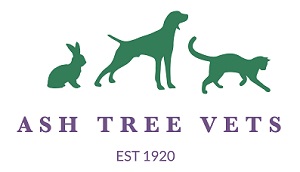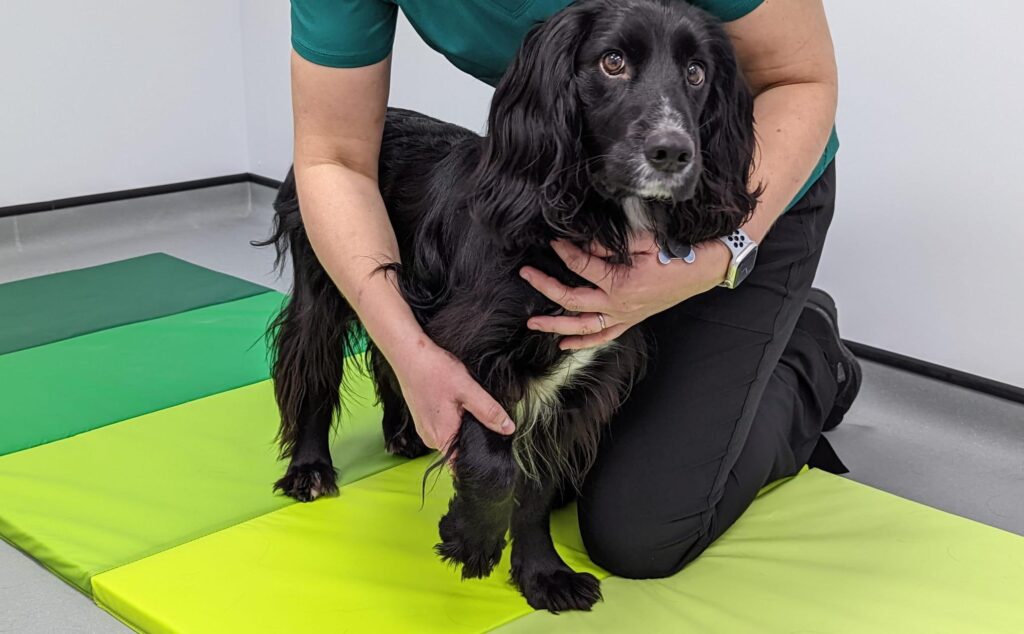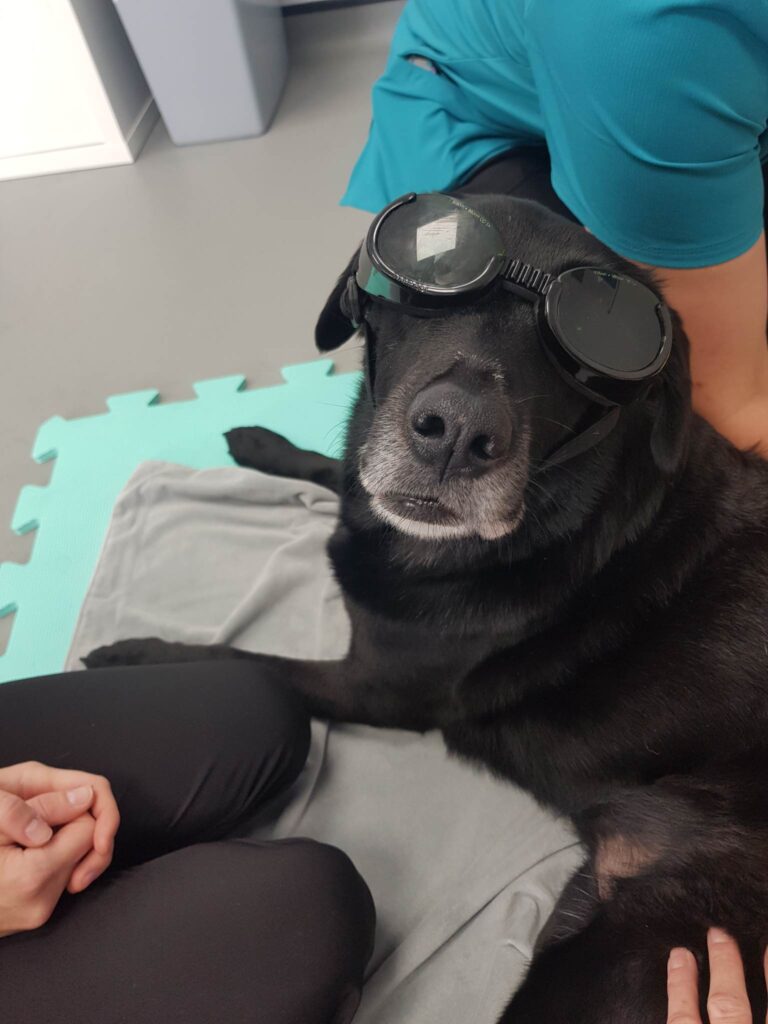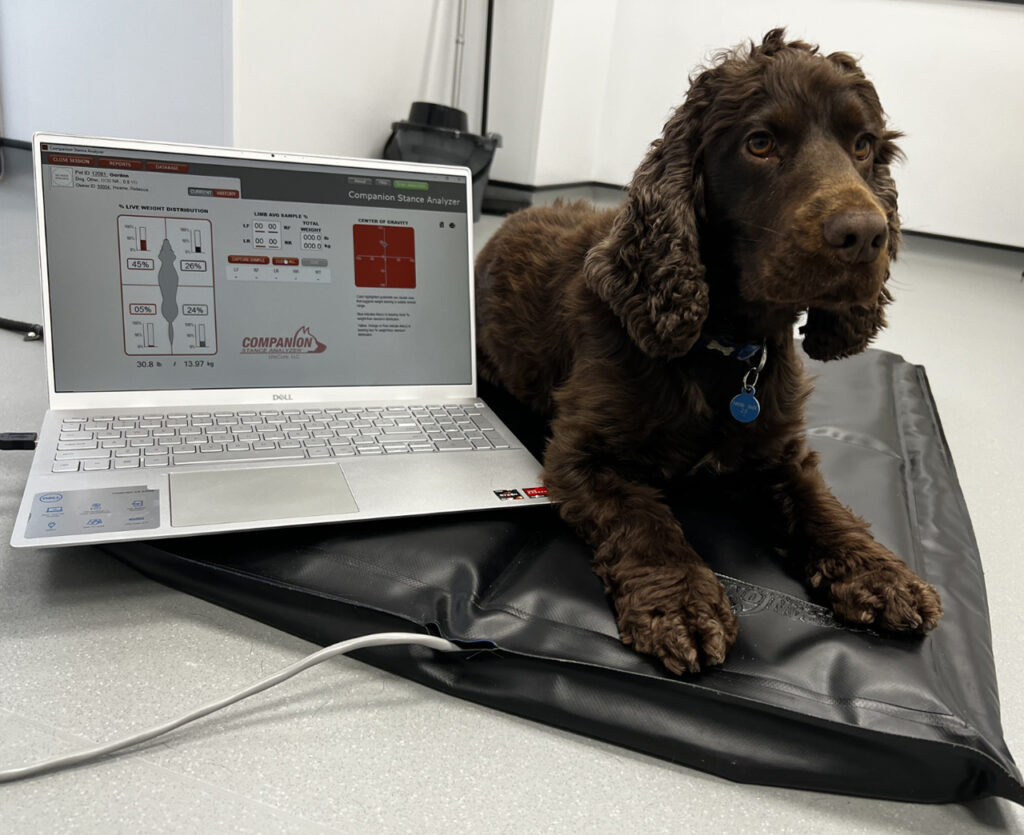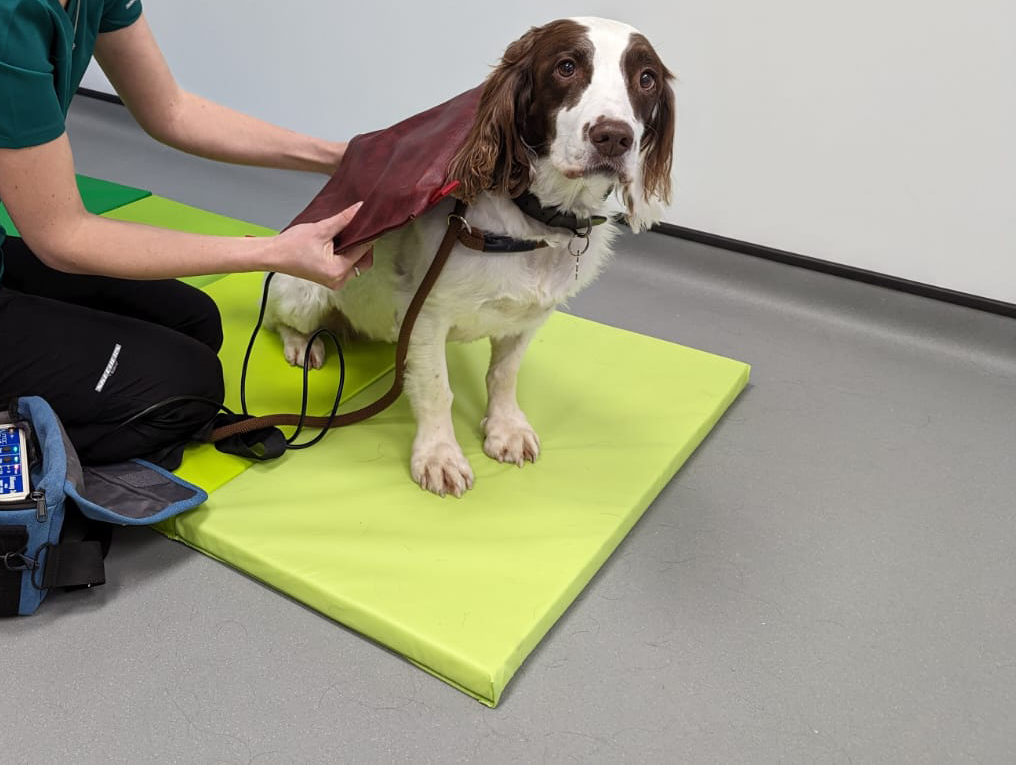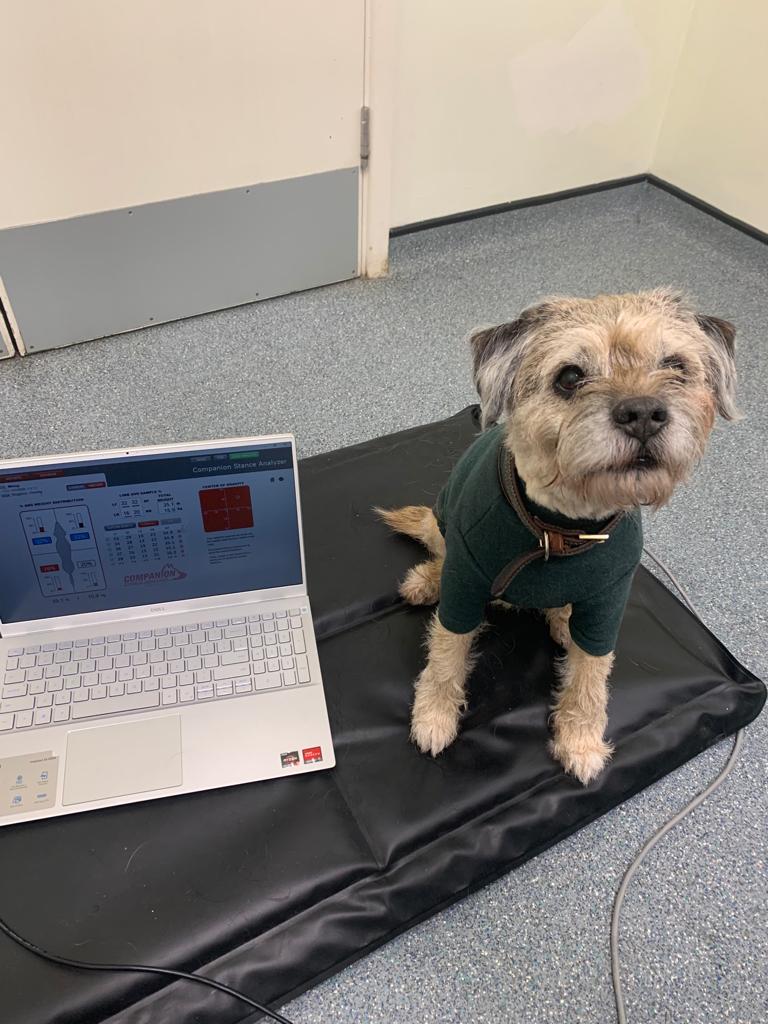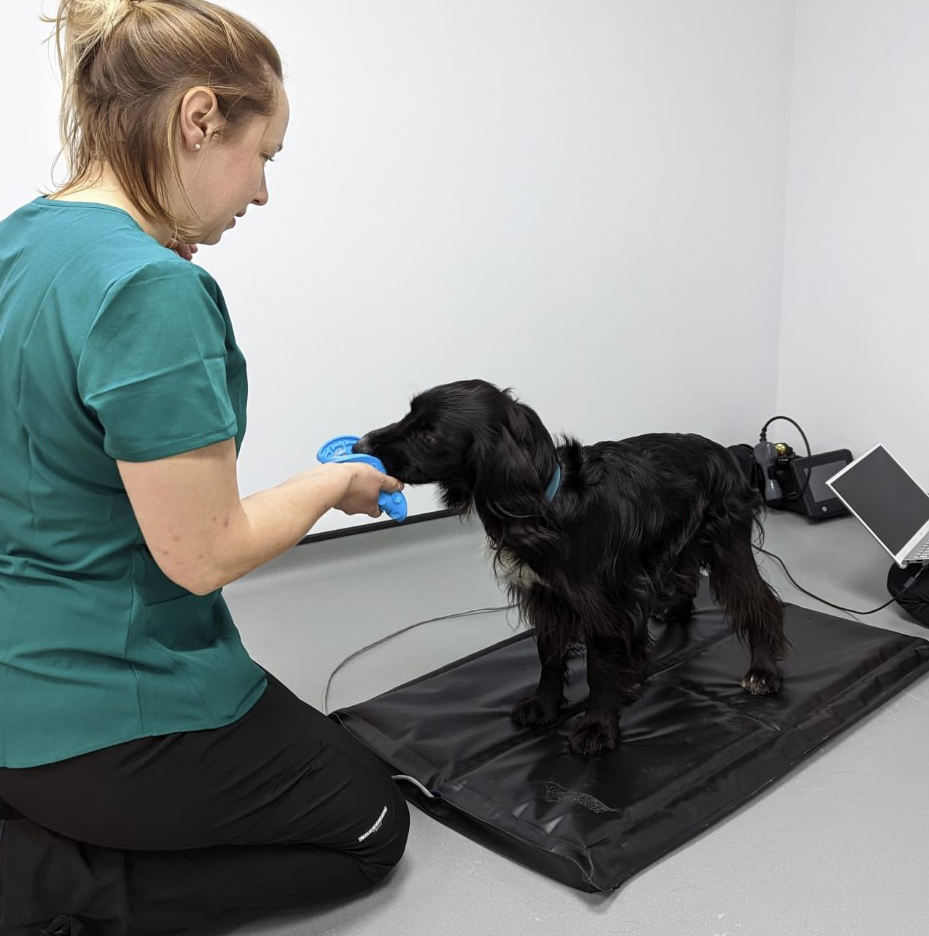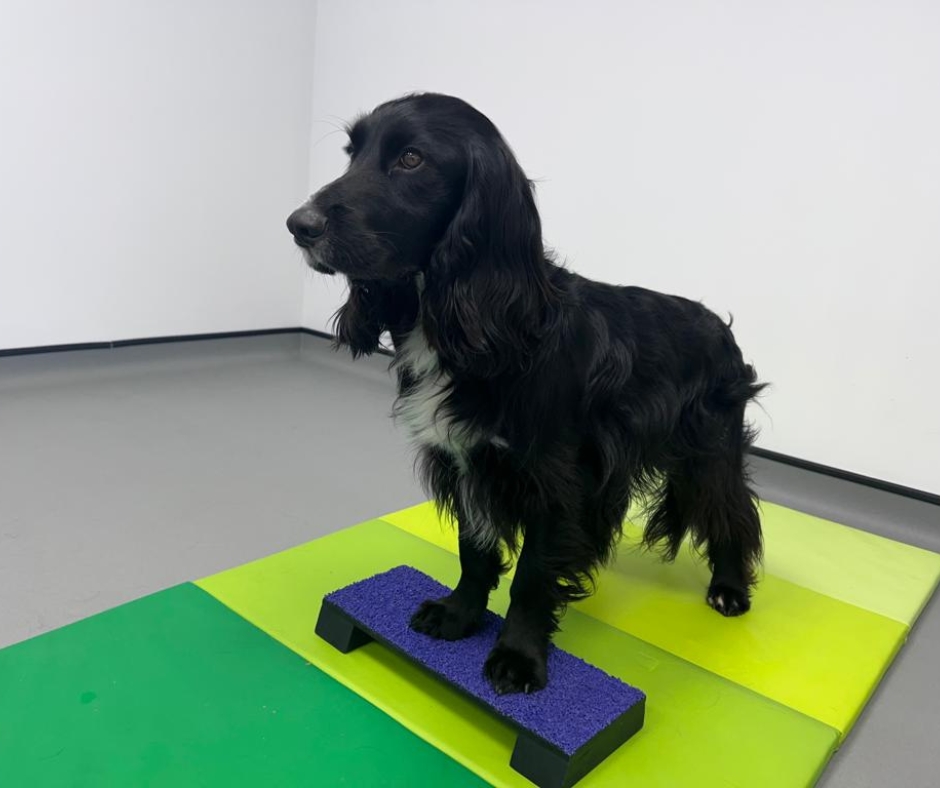Physiotherapy
Animal Physiotherapy is used alongside veterinary care to help in the treatment or long-term management of many musculoskeletal or neurological injuries and conditions.
Animal Physiotherapy can be beneficial throughout all life stages and for a variety of different injuries and conditions.
- Addressing conformation or development issues (e.g. hip dysplasia)
- Muscle strengthening, improving posture and promoting joint health during growth is beneficial for any dog but particularly large breeds, working or sporting dogs.
- Rehabilitation from injury or surgery (e.g. cruciate disease or surgery)
- Fitness and conditioning during and between seasons for sporting or working dogs (e.g. agility or gundogs)
- Management of degenerative musculoskeletal issues (e.g. osteoarthritis)
- Rehabilitation or management of neurological conditions (e.g. intervertebral disc disease)
- Addressing and helping to delay the impact of age related musculoskeletal changes (e.g. muscle wastage)
For more information, please give us a call on 0116 279 3054 and speak to one of the friendly team to find out more about our Physiotherapy Suite in our Kibworth branch.

